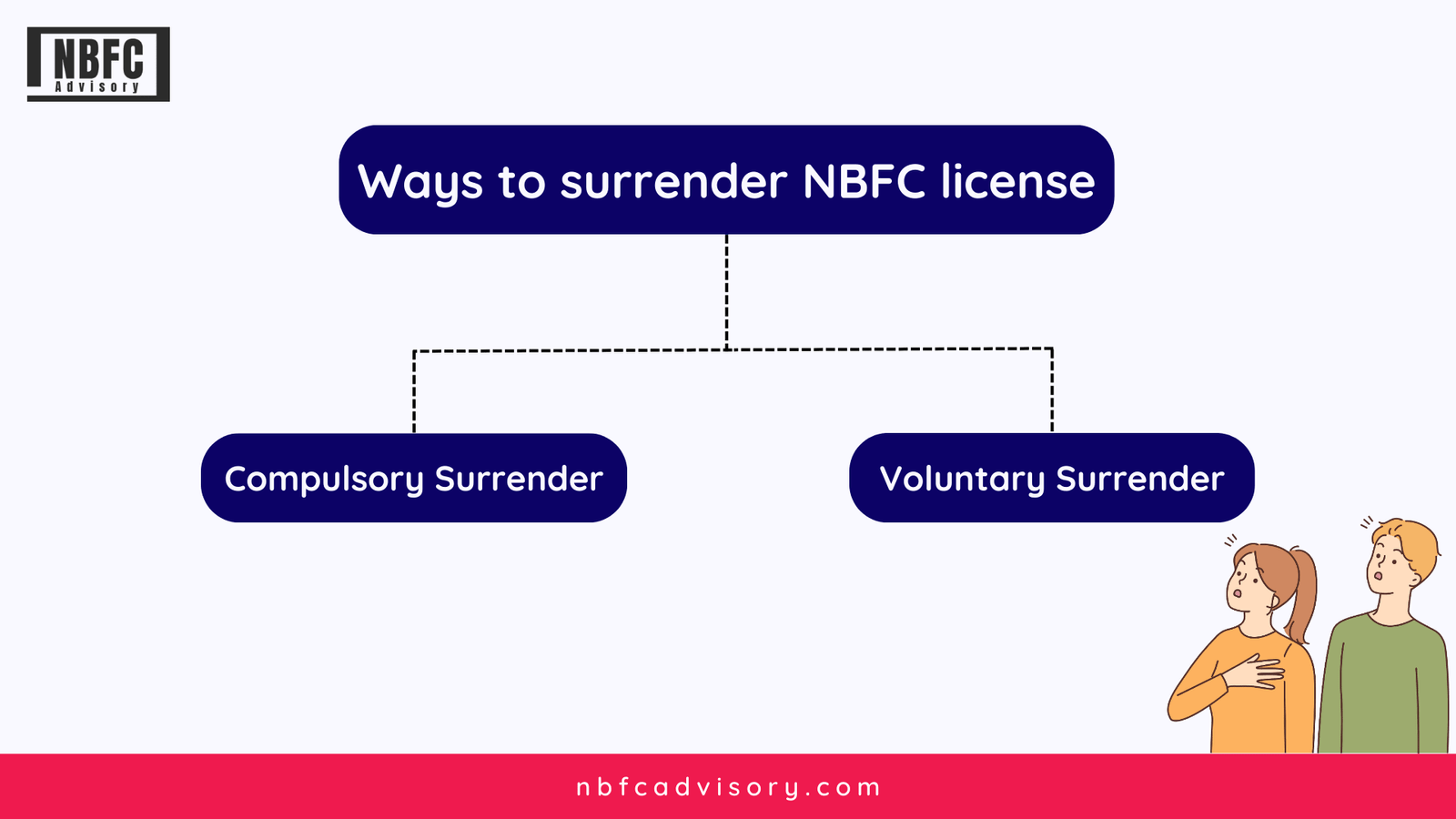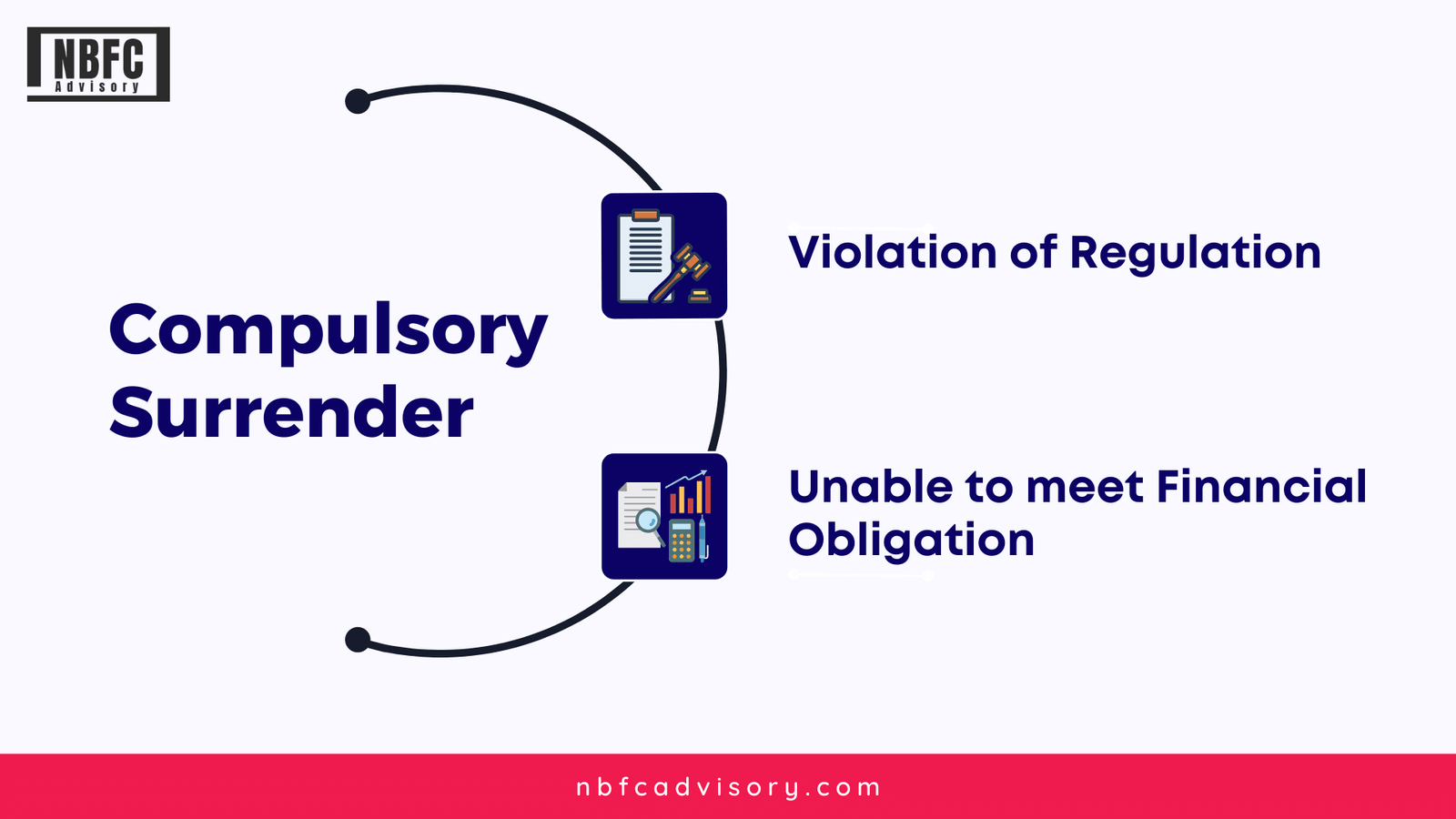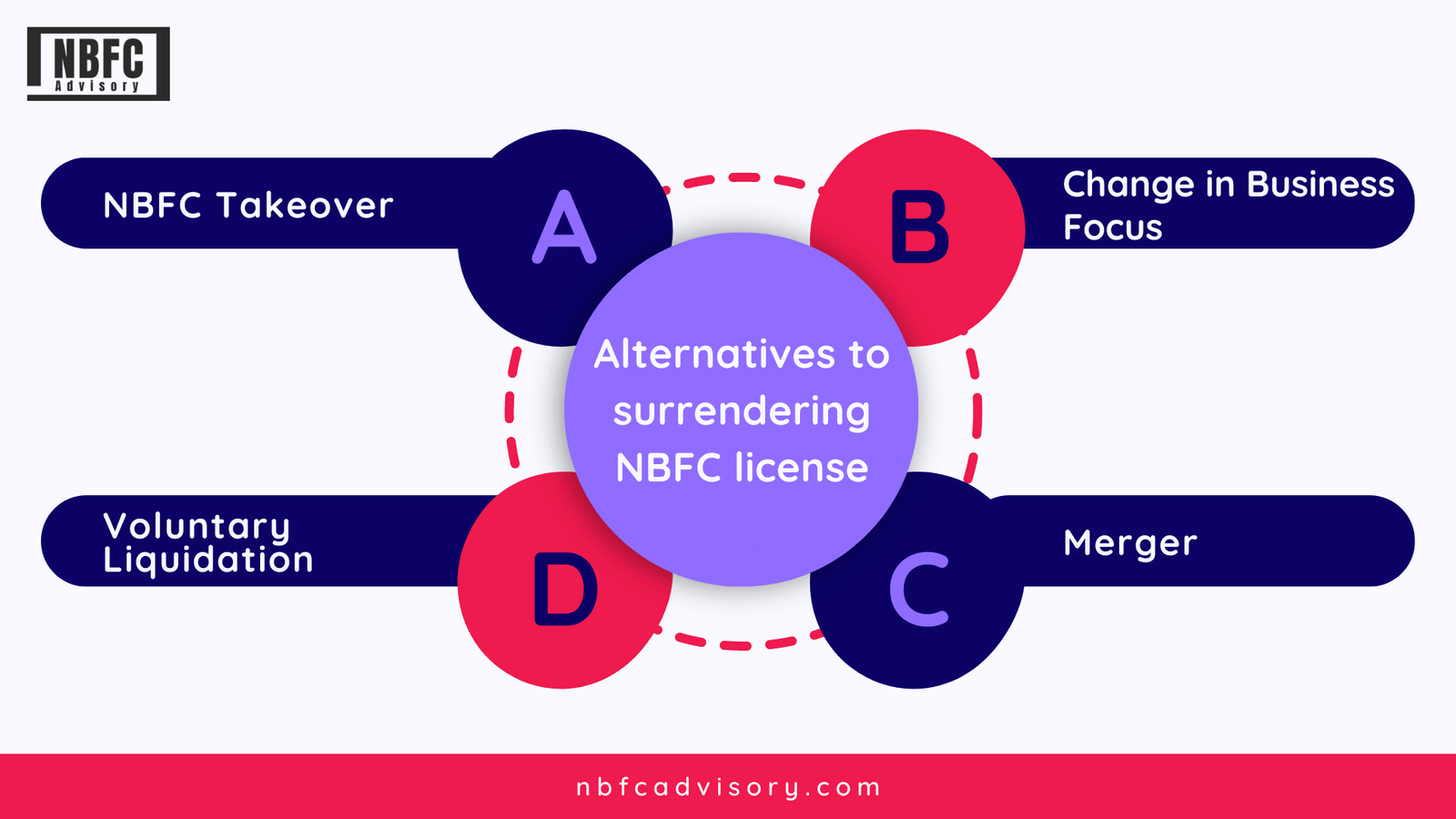Inside This Article
A Non-Banking Financial Company (NBFC) is a financial institution that provides financial services but does not accept public deposits and is regulated by the Reserve Bank of India (RBI).
In recent years, Non-Banking Financial Companies (NBFCs) have emerged as vital players in the financial landscape, serving as an alternative to traditional banks. These institutions have played a significant role in promoting financial inclusion, extending credit facilities to underserved sectors, and driving economic growth.
However, amidst their growth and development, surrendering an NBFC license has become an important topic of discussion in recent years. As Non-Banking Financial Companies (NBFCs) have evolved and expanded their services, some licenses have been canceled or voluntarily surrendered. Understanding the reasons behind these developments is crucial for individuals and entities in the NBFC sector.
In this blog, we will explore the factors contributing to the surrendering of NBFC licenses, enabling readers to make informed decisions within the regulatory framework.
Ways to Surrender NBFC License

NBFCs can surrender their license to the Reserve Bank of India (RBI) through voluntary or compulsory means.
Voluntary Surrender: This occurs when an NBFC submits an application to the RBI, typically due to reasons such as the inability to operate profitably, acquisition by another financial institution, or a strategic decision to exit the financial services industry.
Compulsory Surrender: On the other hand, compulsory surrender occurs when the RBI cancels an NBFC’s license due to violations of its regulations.
Compulsory Surrender of NBFC License

Compulsory surrender of an NBFC license by the Reserve Bank of India (RBI) can occur for two main reasons.
Firstly, if an NBFC violates any of the regulations set by the RBI, such as non-compliance with capital adequacy requirements, failure to maintain proper records, or engaging in prohibited activities, the RBI has the authority to cancel its license. This serves as a measure to enforce regulatory discipline and maintain the financial system’s integrity.
Secondly, if an NBFC is unable to fulfill its financial obligations, such as meeting its repayment obligations, honoring customer deposits, or maintaining liquidity, the RBI may also compel the surrender of its license. This ensures the protection of stakeholders and prevents further financial risks from arising.
When an NBFC’s license is compulsorily surrendered by the RBI, it means that the NBFC is required to wind down its business operations immediately. The NBFC will need to cease all lending and investment activities, close its branches, and initiate the process of liquidating its assets. This ensures an orderly exit from the financial market and minimizes potential disruptions.
The RBI’s ability to compulsorily surrender an NBFC license underscores the significance of adhering to regulatory guidelines and maintaining financial soundness. It serves as a reminder for NBFCs to prioritize compliance and prudential financial management to avoid the severe consequences of license cancellation.
Voluntary Surrender of NBFC License

The voluntary surrender of an NBFC license is a decision made by the NBFC itself, typically due to various factors that may prompt them to exit the financial sector. There are several reasons why NBFCs choose to surrender their licenses voluntarily:
- Lack of profitability: An NBFC may find it challenging to operate profitably due to factors such as increased competition, changing market dynamics, or unfavorable economic conditions. In such cases, surrendering the license allows the NBFC to exit the industry and explore other business opportunities.
- Strategic considerations: An NBFC may decide to surrender its license as part of a strategic move, such as merging with or being acquired by another financial institution. This decision could be driven by the desire to achieve synergies, expand market presence, or streamline operations.
- Changing business focus: Over time, an NBFC may reassess its business objectives and realize that its current line of financial services no longer aligns with its long-term strategy. In such cases, surrendering the license allows the NBFC to transition its operations to a different sector or explore new business avenues.
- Regulatory compliance: Voluntary surrender may also arise from the realization that the NBFC is unable to meet the regulatory requirements set by the RBI. Rather than facing potential penalties or regulatory scrutiny, the NBFC may voluntarily surrender its license and exit the industry in a compliant manner.
The Procedure of Voluntary Surrender of NBFC License
The procedure for voluntarily surrendering an NBFC license is relatively straightforward. However, it is essential to note that this is serious and should not be taken lightly. The RBI will only approve applications for voluntary surrender of licenses made for legitimate reasons.
If you are considering voluntarily surrendering your NBFC license, there are a few things you should keep in mind. First, one must have a valid reason for surrendering the nbfc license. The RBI will not approve applications for the voluntary surrender of licenses that are simply made for convenience or to avoid regulatory requirements.
Second, a plan for winding down your operations. This plan should include a timeline for repaying debts and a strategy for disposing of assets.
Third, be prepared to pay a surrender fee to the RBI. The amount of the surrender fee will vary depending on the size of your NBFC.
The following are the steps involved in surrendering an NBFC license:

Submit an application to the RBI:- The application must be in writing and signed by an authorized signatory of the NBFC. The application must include the following information:
- The name of the NBFC
- The registration number of the NBFC
- The reason for the surrender of the license
- A list of all assets and liabilities of the NBFC
Provide supporting documents:- The following documents must accompany the application:
- A copy of the NBFC’s Certificate of Registration (CoR)
- A copy of the NBFC’s latest balance sheet and profit and loss statement
- A list of all the NBFC’s assets and liabilities
- A letter from the NBFC’s auditor confirming that the NBFC is solvent and has no outstanding liabilities
Wait for the RBI’s approval:- The RBI will review the application and may request additional information. If the RBI approves the application, the NBFC will be required to wind down its operations and cease all financial activities.
Wind down operations:- The NBFC must wind down its operations within a specified timeframe, including repaying all debts, disposing of all assets, and closing all accounts.
Cease all financial activities:- Once the NBFC has wound down its operations, it must cease all financial activities. It includes providing loans, issuing guarantees, and accepting deposits.
The RBI may impose penalties on NBFCs that fail to comply with the requirements for surrendering a license. These penalties may include fines, suspension of operations, or revocation of the license.
What happens after the surrender of the NBFC license?
When an NBFC surrenders its license, it can no longer carry on any activities regulated by the Reserve Bank of India (RBI). It includes accepting public deposits, lending money, and providing financial services. The NBFC must also wind down its business and repay all its debts.
The process of winding down an NBFC can be complex. The NBFC must identify all of its assets and liabilities and then sell or dispose of its assets to raise money to repay its debts. Once the debts have been repaid, the NBFC can be dissolved.
Impact of surrendering the NBFC license?
The impact of surrendering an NBFC license can be significant for the company and its stakeholders. Here are some of the key impacts:
Loss of customers: When an NBFC surrenders its license, it can no longer offer financial services to its customers. It can lead to customer losses, further damaging the company’s financial performance.
Damage to reputation: Surrendering an NBFC license can damage the company’s reputation. It can make it difficult for the company to attract new customers or to raise capital in the future.
Legal implications: Surrendering an NBFC license can have a number of legal implications for the company. For example, the company may be required to repay its creditors’ debts.
Alternatives to surrendering NBFC license

The best alternative for an NBFC will depend on the specific circumstances of the company. If an NBFC is facing financial difficulties, it may be necessary to surrender its license. However, if the NBFC is simply looking to change its business focus or to operate under a different regulatory framework, there may be other alternatives available.
NBFC Takeover: An NBFC may sell its business to another company/management. It can be a good option for an NBFC not interested in operating in the financial services sector. When an NBFC sells its business, it receives a payment from the buyer. It can be used to repay debts, pay shareholders, invest in other businesses.
Change in business focus: If an NBFC is no longer interested in providing financial services, it may be able to change its business focus to focus on activities that do not require a license from the RBI. For example, an NBFC could focus on providing non-financial services, such as consulting or training. This would allow the NBFC to continue operating as a going concern, but it would also allow the company to exit the financial services industry.
Merger: A merger can be a good option for an NBFC that is facing financial difficulties. By merging with another financial institution, the NBFC can access new capital and resources. This can help the NBFC to turn around its financial performance and to continue operating under the new entity’s license.
Voluntary liquidation: Voluntary liquidation is a last resort option for an NBFC, and it should only be considered if the NBFC is unable to find a more viable solution. When an NBFC voluntarily liquidates, it sells its assets and uses the proceeds to repay its debts. Once all of the debts have been repaid, the NBFC is dissolved.
Selling to another company/management can be a good option for an NBFC because it allows the NBFC to exit the financial services sector without having to go through the process of surrendering its license. It can also be a good option for the NBFC’s customers, employees, and creditors because it ensures that they will not be affected by the NBFC’s decision to exit the financial services sector.
Conclusion
Surrendering an NBFC license is a serious decision that should not be taken lightly. There are a number of factors to consider, including the impact on the company, its stakeholders, and the financial system as a whole. If you are considering surrendering your NBFC license, it is important to speak to an attorney or financial advisor to understand the full implications of your decision.
And NBFC Advisory can be of assistance here. We’ll walk you through all the regulations and legal requirements necessary to return your license. Additionally, we provide services like NBFC takeovers. Regardless of how complicated the procedure and documentation for NBFC Acquisition/NBFC Takeover with RBI is, our professionals can help you streamline the process by guiding you through each step. Contact us to find out more.





